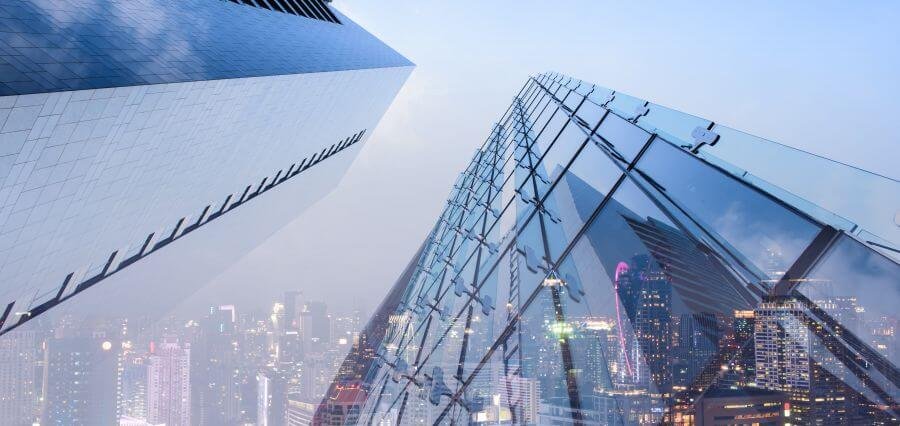Maharashtra’s real estate sector has witnessed a resurgence driven by factors such as urbanization, infrastructure development, and economic growth. However, along with opportunities, the sector also faces challenges related to affordability, sustainability, and regulatory compliance.
In this article, we explore the trends shaping Maharashtra’s real estate market, the challenges it confronts, and the opportunities it presents for investors, developers, and homebuyers.
Urbanization and Population Growth:
Maharashtra’s major cities, including Mumbai, Pune, and Nagpur, are experiencing rapid urbanization and population growth. This trend has fueled demand for residential, commercial, and industrial properties, driving real estate development across the state. Urbanization presents opportunities for mixed-use developments, transit-oriented projects, and smart city initiatives aimed at creating sustainable and livable urban environments.
Infrastructure Development and Connectivity:
Infrastructure development projects such as metro rail networks, expressways, and airport expansions are enhancing connectivity and accessibility in Maharashtra. Improved transportation infrastructure not only boosts property values in transit-oriented areas but also opens up new growth corridors for real estate development. Developers are capitalizing on infrastructure projects to create integrated townships and commercial hubs with excellent connectivity.
Affordable Housing Initiatives:
Addressing the challenge of housing affordability, the Maharashtra government has launched various affordable housing schemes and incentives for developers. These initiatives aim to provide housing solutions for low and middle-income families while stimulating demand in the real estate market. Affordable housing projects are witnessing increased demand, especially in suburban areas and peripheral regions of major cities.
Commercial and Office Space Demand:
Maharashtra’s growing economy and vibrant business environment have led to robust demand for commercial and office space. Mumbai and Pune, in particular, are witnessing a surge in demand from IT/ITeS companies, BFSI sector, co-working operators, and multinational corporations. Grade A office spaces in prime locations are commanding premium rents, attracting institutional investors and developers to the commercial real estate segment.
Sustainability and Green Building Practices:
With increasing awareness of environmental sustainability, there is a growing emphasis on green building practices and sustainable development in Maharashtra’s real estate sector. Developers are incorporating eco-friendly features such as energy-efficient designs, rainwater harvesting systems, and green spaces into their projects. Green buildings not only reduce environmental impact but also appeal to environmentally conscious homebuyers and tenants.
Regulatory Reforms and Compliance:
Regulatory reforms such as RERA (Real Estate Regulation and Development Act) have brought greater transparency and accountability to Maharashtra’s real estate market. Compliance with regulatory requirements, including project approvals, title clearances, and escrow account maintenance, is essential for developers to gain buyer confidence and ensure project delivery timelines. However, navigating regulatory complexities remains a challenge for developers and investors.
Technology Adoption and Digital Transformation:
Technology adoption is reshaping Maharashtra’s real estate sector, with digital platforms, virtual reality, and artificial intelligence revolutionizing property transactions, marketing, and project management. Online property portals, digital marketing strategies, and CRM (Customer Relationship Management) tools enable developers to reach a wider audience, streamline operations, and enhance customer engagement in the digital age.
Opportunities in Redevelopment and Revitalization:
Maharashtra offers opportunities for redevelopment and revitalization projects in aging infrastructure, dilapidated buildings, and underutilized land parcels. Redevelopment initiatives aim to modernize urban areas, enhance infrastructure, and improve the quality of life for residents. Projects such as slum rehabilitation, heritage conservation, and brownfield developments unlock new avenues for real estate investment and revitalization of urban spaces.
Investment in Infrastructure and Amenities
To support the growing real estate demand, Maharashtra is investing in enhancing infrastructure and amenities such as roads, water supply, sewage systems, and recreational spaces. Infrastructure upgrades not only improve the quality of life for residents but also attract developers and investors to new development areas. Strategic infrastructure investments can unlock the potential of previously underdeveloped regions, driving real estate growth and value appreciation.
Mixed-Use Developments and Placemaking
Mixed-use developments combining residential, commercial, retail, and entertainment spaces are gaining popularity in Maharashtra’s urban centers. These developments promote walkability, convenience, and community interaction, creating vibrant urban neighborhoods. Placemaking initiatives focus on creating engaging public spaces, cultural hubs, and recreational amenities that enhance the overall appeal and livability of real estate projects.
Adaptation to Changing Consumer Preferences
Maharashtra’s real estate market is adapting to changing consumer preferences influenced by lifestyle trends, demographic shifts, and technological advancements. There is a growing demand for flexible living spaces, smart homes, and amenities catering to wellness and work-from-home requirements. Developers are incorporating these features into their projects to meet the evolving needs and preferences of homebuyers and tenants.
Public-Private Partnerships for Affordable Housing
Public-private partnerships (PPPs) play a significant role in addressing the affordable housing gap in Maharashtra. Collaborative efforts between government agencies, private developers, and financial institutions facilitate the development of affordable housing projects with subsidized pricing and favorable financing options. PPP models ensure the efficient utilization of resources and expertise to deliver affordable housing solutions to low and middle-income families.
Risk Mitigation Strategies for Developers
Real estate developers in Maharashtra are implementing risk mitigation strategies to navigate market uncertainties and regulatory challenges. Diversification of project portfolios, prudent financial management, and proactive risk assessment help developers mitigate risks associated with project delays, funding constraints, and market fluctuations. Strategic partnerships and joint ventures with established players provide developers with additional resources and expertise to manage risks effectively.
Read More: Click Here




